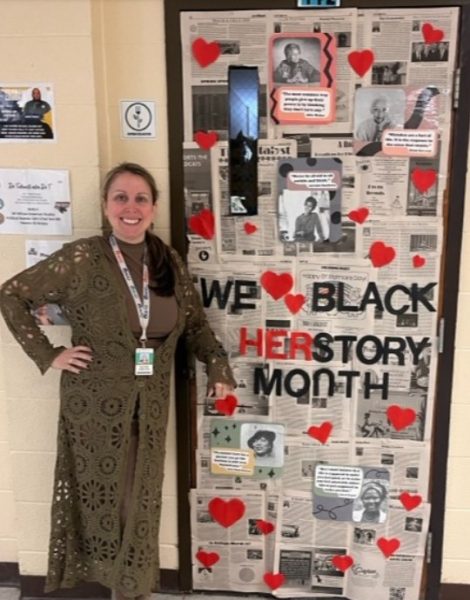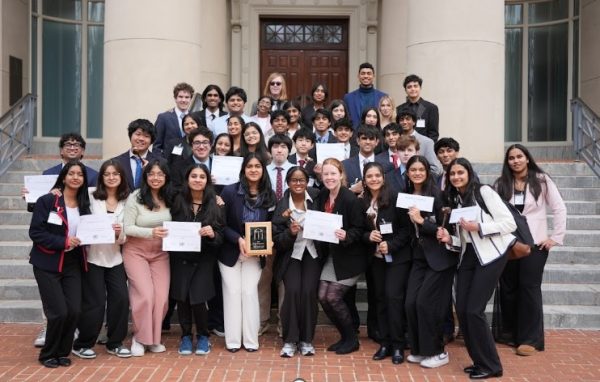Wizards of the Coast OGL Drama
Over the past several years, Dungeons and Dragons (D&D) has rapidly grown in popularity due to shows such as “Stranger Things” and “Critical Role” as well as the Covid-19 pandemic, which left many with more free time than they were used to. But, recent events have revealed a dark side to beloved game company Wizards of the Coast due to drama over a new change to the Dungeons and Dragons open game license (OGL). In the past, the D&D OGL has been lenient and allowed fan-made content to be created and distributed; however, recently, Wizards has tried to implement a new, much stricter policy on creators using the Dungeons and Dragons brand.
The original OGL created before the release of D&D third edition allowed for the creation and profit of D&D-inspired material like “homebrew” expansions or live-streamed campaigns. An updated OGL plan was leaked in January 2023 and caused outrage among fans. Wizards planned to watch anyone who made their own D&D content. Wizards also planned to rope larger companies into a binding contract demanding a percentage of their money earned. On January 19th, 2023, Wizards announced a new plan labeled OGL 1.2, providing a way for fans to review and respond to Wizards. Fans reacted negatively to the 1.2 plan and informed Wizards that they were dissatisfied with it.
Fans wanting to prevent the new OGL from going into effect formed together and started a massive boycott of D&D Beyond, the official D&D Website. Players quickly switched to new game systems such as Pathfinder and Call of Cthulhu. Many wish to continue boycotting by refusing to see the upcoming D&D movie “Honor Among Thieves.” Wizards has decided that due to such negative feedback, they shall return to using the original OGL policy and potentially make it even more lenient. Luke Chernishkin (10) says, “What is there to say other than Wizards of the Coast – cringe and greedy.” Zachary Rivers (10) thought that it was “a terrible idea, and if it was kept around, it would have severely limited the community’s ability to be creative.”
 Many small online creators voiced their grievances on the internet, but more prominent creators remained silent for the most part, which is likely due to them already being in contracts with Wizards which could prevent them from speaking out against the company. Popular online web series Critical Role where a group of voice actor friends play D&D, responded with a vaguely worded tweet voicing support for creativity. Some think that this was not enough said, while others believe it was a legally appropriate way of threatening Wizards of the Coast, reminding them of Critical Role’s own publishing company Darrington Press. Ivy Chalker (12) said that the new OGL was possibly an attempt from Wizards to “monopolize the whole TTRPG community.” And that the OGL plan takes away from the point of the fifth edition D&D of providing a creative space for players and Dungeon Masters. Taylor Loftin (9) thought Wizards’ attempt to monopolize the TTRPG would fail since there’s already so much merchandise and fan homebrew that had been created it would only be possible to account for some of it.
Many small online creators voiced their grievances on the internet, but more prominent creators remained silent for the most part, which is likely due to them already being in contracts with Wizards which could prevent them from speaking out against the company. Popular online web series Critical Role where a group of voice actor friends play D&D, responded with a vaguely worded tweet voicing support for creativity. Some think that this was not enough said, while others believe it was a legally appropriate way of threatening Wizards of the Coast, reminding them of Critical Role’s own publishing company Darrington Press. Ivy Chalker (12) said that the new OGL was possibly an attempt from Wizards to “monopolize the whole TTRPG community.” And that the OGL plan takes away from the point of the fifth edition D&D of providing a creative space for players and Dungeon Masters. Taylor Loftin (9) thought Wizards’ attempt to monopolize the TTRPG would fail since there’s already so much merchandise and fan homebrew that had been created it would only be possible to account for some of it.

The future of Dungeons and Dragons and Wizards of the Coast, although less grim than before their apology, still needs to be determined and clarified. Some players have moved on to new gaming systems, others are returning cautiously, and content creators focus less on D&D but the broader TTRPG (tabletop role-playing game) genre. Nevertheless, it’s safe to say that a new era for the gaming community has begun and will push on with or without Wizards of the Coast, depending on whatever policies they introduce in the coming years.

Brooks Gannon is a sophomore, and this is his first year in our Journalism Class. He enjoys playing video games, reading books, and the occasional D&D...


